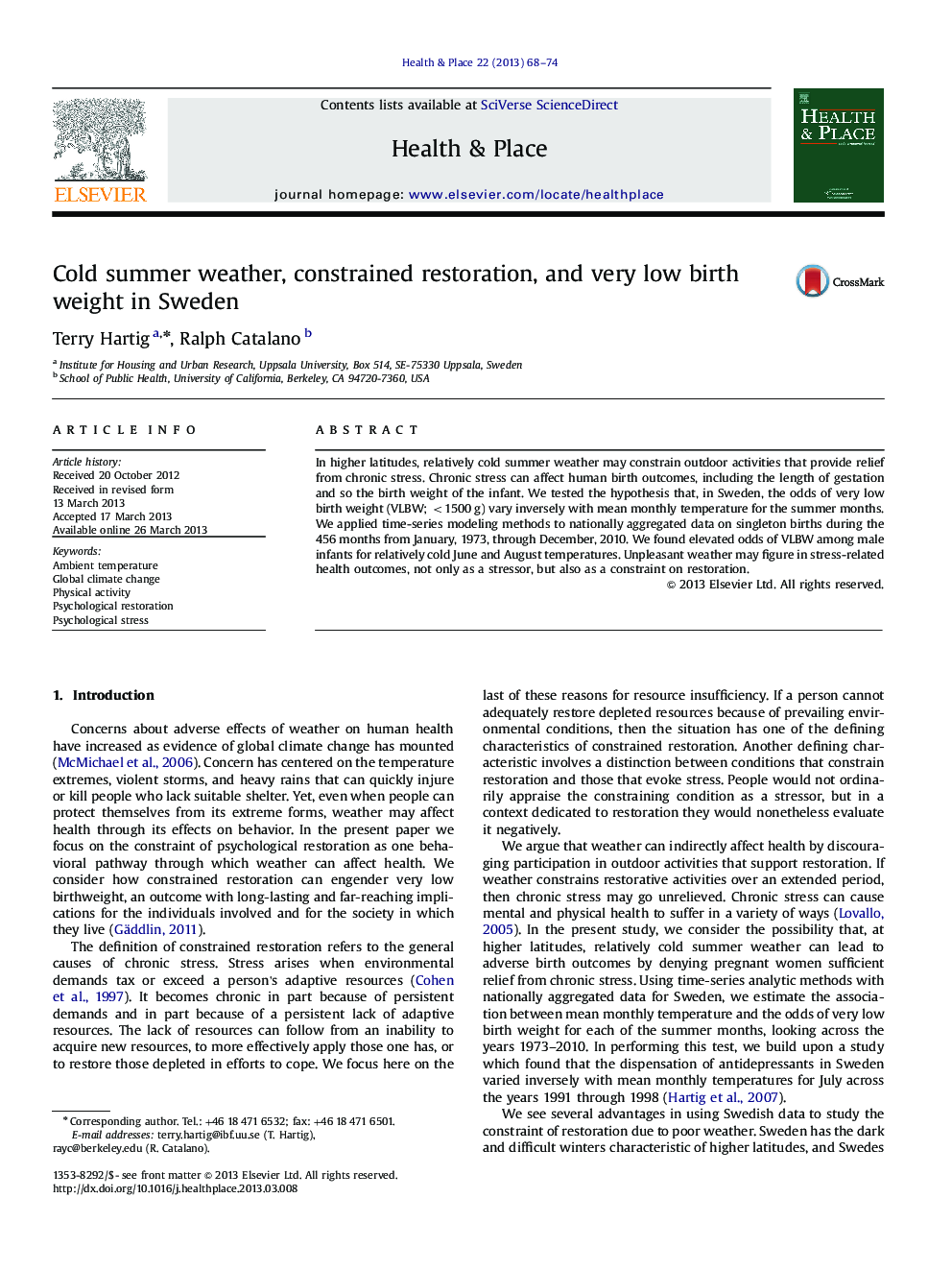| Article ID | Journal | Published Year | Pages | File Type |
|---|---|---|---|---|
| 7459132 | Health & Place | 2013 | 7 Pages |
Abstract
In higher latitudes, relatively cold summer weather may constrain outdoor activities that provide relief from chronic stress. Chronic stress can affect human birth outcomes, including the length of gestation and so the birth weight of the infant. We tested the hypothesis that, in Sweden, the odds of very low birth weight (VLBW; <1500Â g) vary inversely with mean monthly temperature for the summer months. We applied time-series modeling methods to nationally aggregated data on singleton births during the 456 months from January, 1973, through December, 2010. We found elevated odds of VLBW among male infants for relatively cold June and August temperatures. Unpleasant weather may figure in stress-related health outcomes, not only as a stressor, but also as a constraint on restoration.
Keywords
Related Topics
Health Sciences
Medicine and Dentistry
Public Health and Health Policy
Authors
Terry Hartig, Ralph Catalano,
